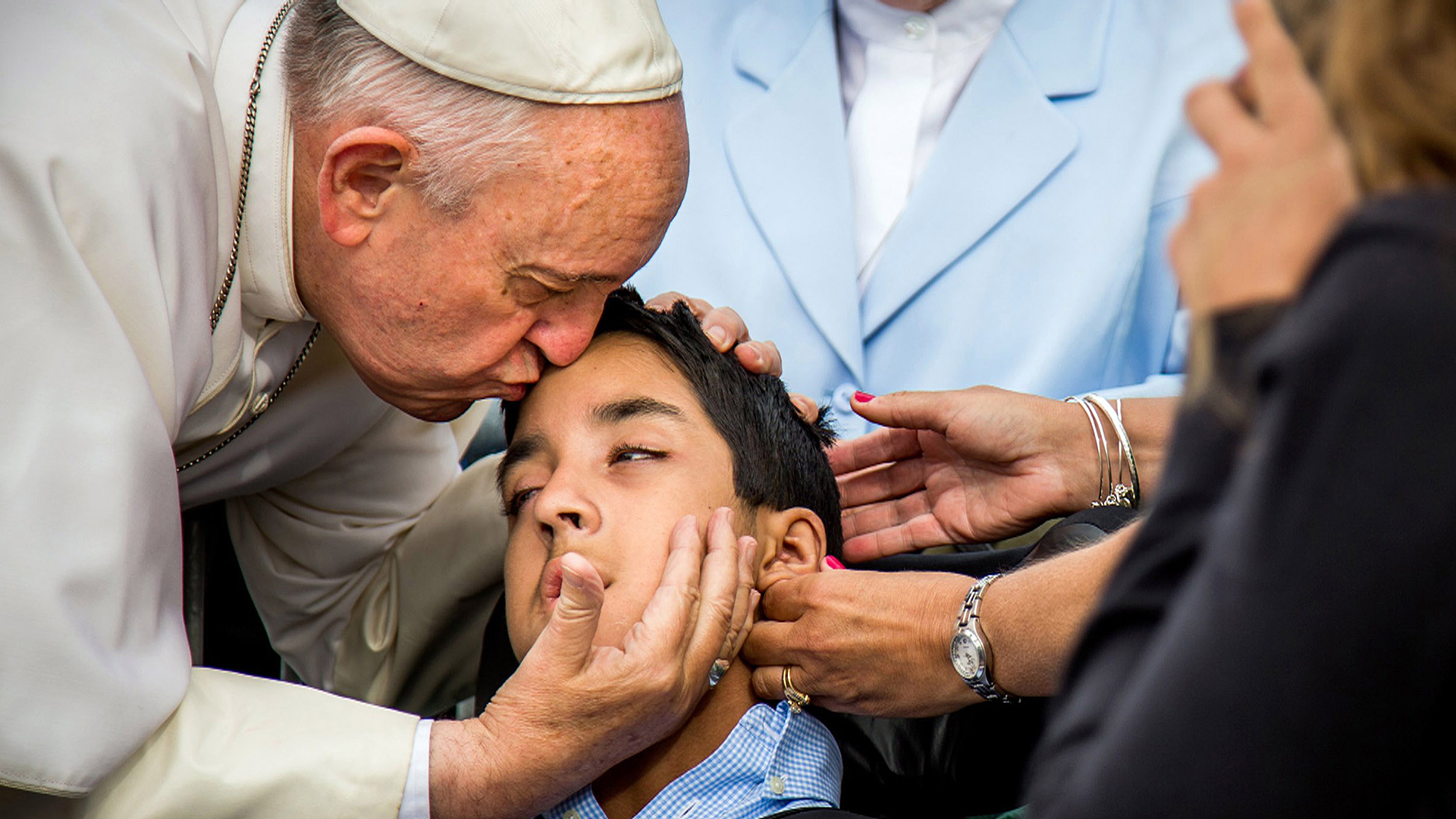In The Pope Video for January, Pope Francis encourages us “to recognise the gift of different charisms within the Christian communities, and to discover the richness of different ritual traditions within the Catholic Church.”
The Holy Father’s intention becomes a moving appeal: “There is no need to fear the diversity of charisms in the Church.”
Pope Francis acknowledges the contribution the Eastern Churches offer: “They have their own traditions, their own characteristic liturgical rites, yet they maintain the unity of the faith. They strengthen it, not divide it.”
Christians need to understand and live “the gift of diversity in the Church.” This is the powerful prayer intention Pope Francis shares in the first Pope Video of the new year.
In his video message, Pope Francis, through the Pope’s Worldwide Prayer Network, asks that we “recognise the gift of different charisms within the Christian communities, and to discover the richness of different ritual traditions within the Catholic Church”.
“There is no need to fear the diversity of charisms in the Church.”
The diversity of charisms, theological and liturgical traditions is something positive. It should never cause division. Rather, “living this diversity should make us rejoice”, the Pope explains in the message commenting on the prayer intention he is proposing for the month of January.
The richness of the Eastern Churches
In particular, Pope Francis mentions the Eastern Churches: “They have their own traditions, their own characteristic liturgical rites, yet they maintain the unity of the faith. They strengthen it, not divide it.”
There are numerous Eastern Churches in communion with Rome, such as the Byzantine Catholics, the Greek-Catholic Ukrainian Church, or the Melchite Greek Church.
Other examples of ritual diversity within Catholicism are the Syro-Malabar Church and the Catholic Syro-Malankar Church, both of which originated in India; the Maronite Church, of Lebanese origin; the Catholic Coptic Church, of Egyptian origin; the Armenian Catholic Church; the Chaldean Church, predominantly in Iraq; as well as the Ethiopian-Eritrean Catholic Church, among others.
Pope Francis explains: “If we are guided by the Holy Spirit, abundance, variety, diversity, never cause conflict.
“The Holy Spirit reminds us first and foremost that we are children loved by God – everyone equal in God’s love, and everyone different.”
Like the first Christians
“Diversity and unity were already very much present in the first Christian communities. But there’s more. To move forward on the journey of faith, we also need ecumenical dialogue with our brothers and sisters of other confessions and Christian communities.”
“This is not something confusing or disturbing,” the Pope clarifies, “but is a gift God gives to the Christian community so it might grow as one body, the Body of Christ.”
United under the cross
The common thread of the video of the Pope this month is the cross, symbol of unity and diversity: a cross that appears on doors, on mountains, in churches, to show the richness of the various Christian communities, precisely in its diversity.
“The cross is not the rod of the Romans, but the wood on which God wrote the Gospel,” the poet Alda Merini wrote. It is much more than an object of devotion. In short, it is the mystery of love under which all Christians stand, regardless of their confession, tradition and rite.
Pope Francis makes an appeal that, in diversity, “the Christian community might grow as one body, the Body of Christ.” This is why the video ends with the image of an enormous cross formed by thousands of Christians of various backgrounds, symbolically responding to the Holy Father’s appeal.
It is during the month of January that the Week of Prayer for Christian Unity takes place. This year, the theme is “You shall love the Lord your God…and your neighbour as yourself” (Luke 10:27).
Knowing and recognising different charisms
Father Frédéric Fornos SJ, international director of the Pope's Worldwide Prayer Network, underlines “that the diversity of charisms, of theological and liturgical traditions in the Catholic Church, is something positive. There are also many spiritual traditions, such as those promoted by religious orders and congregations.
“God loves diversity. It is a sign of the Holy Spirit’s presence. This is how he leads us to the fullness of truth, to the full breadth, height and depth of His love. This is why, as Pope Francis says, “living this diversity should make us rejoice.”
Our faith grows when we open ourselves to this diversity, also in “ecumenical dialogue with brothers and sisters of other confessions and Christian communities.” This is not something “confusing or disturbing,” the Pope insists, but rather it is “a gift God gives to the Christian community so it might grow as one body, the Body of Christ.”
This month, let us pray that the Holy Spirit helps us recognise the gift of diversity, discover its richness, welcome one other and give thanks for it.

